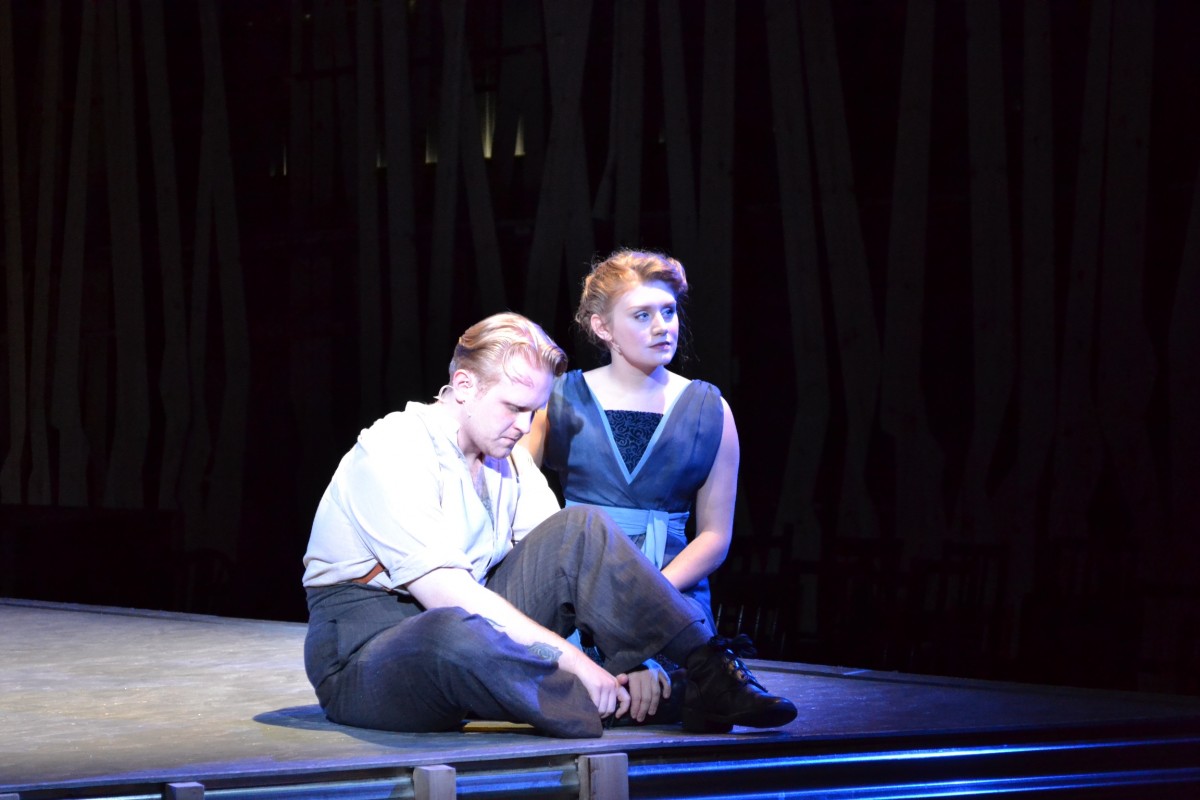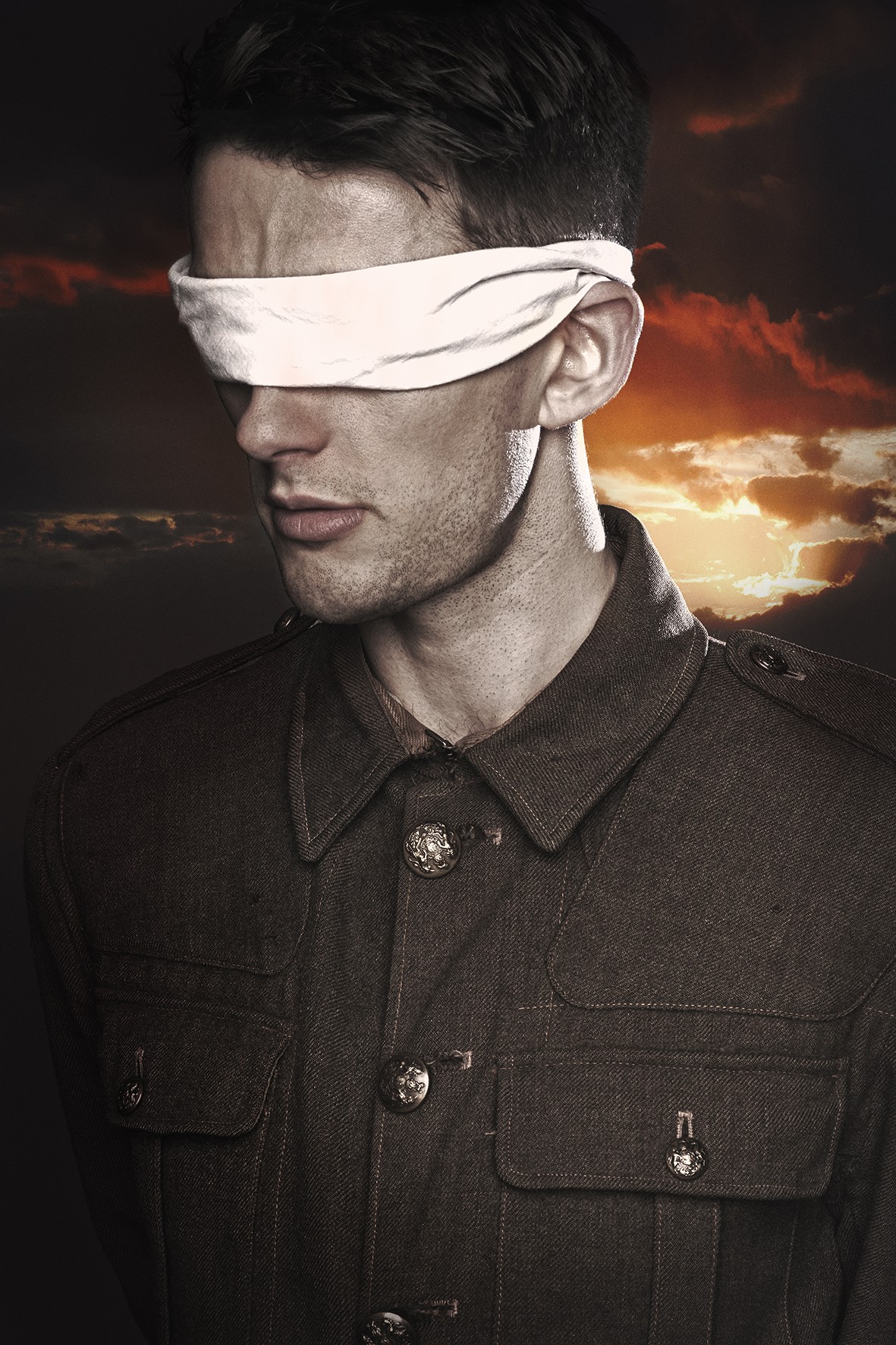×
Staying up long enough to witness the execution of three young men at dawn is not something I thought I’d ever have to worry about. However, in the very early hours of Saturday morning I joined a sold-out audience at Dalcrue Farm in Pitcairngreen to watch on in heat-stopping wonder as nine actors told the personal stories of three men executed for cowardice in World War One.
This extraordinary play, written by Oliver Emanuel, brings together the imagination of the playwright and the very real, first-hand accounts garnered from letters and recordings of eye-witnesses, in order to recreate the startling events that led to 306 soldiers being shot at dawn during WW1.
Directed by Laurie Samson and brought to chilling life by the composing talents of Gareth Williams, the co-production between the National Theatre of Scotland, World War One centenary art commissioning project, 14-18 NOW, and Perth Theatre in association with Red Note Ensemble has made all too real the famous line ‘The hell where youth and laughter go’ from WW1 poet Siegfried Sassoon.
There was a quietness in the dark of the night, as we walked the short distance from coach to make-shift theatre in the barn. The stage set is bare yet imposing, with five stages rising out from the trenches in which the audience sit. It is surrounded on all sides by a wooden, rifle-lined, mezzanine forest which is both incredibly simple and complex all at once.
The 306: Dawn - Trailer from National Theatre of Scotland on Vimeo.
This stark design from Becky Minto perfectly reflects human emotion stripped down to its most basic level and together with the moving score from Gareth Williams, builds the sense of fear and horror among the men – and woman - on all sides of the rifles. The simplicity of the lyrics, at times only single words, demand your full attention and they are carried like bullets, straight and true, by the Red Note Ensemble members, pianist Jonathan Gill, cellist Robert Irvine and violin player Jackie Shave.
Emanuel's play introduces us to Harry Farr, Joseph Byers and Joseph 'Willie' Stones and holds up a mirror to the personal impact that followed in the aftermath of the crude discipline dealt out by the British military during the horror of WW1. Slowly we witness the unravelling of the human spirit in all of its vulnerable state as we follow Joe, Harry and Willie to their brutal demise and it is undoubtedly these personal tales with which we can all identify, relate to and understand on an empathetic level that makes this play so devastatingly poignant.

One of the most powerful pieces of theatre you will see this year, if you haven’t booked a ticket then I urge you to do so now.
Running until June 11th. Matinee and evening perfomances available. BOOK NOW >>>
***
The 306: Dawn is the first in a trilogy of new plays commemorating the First World War and the three hundred and six soldiers who were shot at dawn for cowardice or desertion.
The men, who were granted posthumous pardons by the Ministry of Defence in August 2005, were executed after refusing to serve or follow orders in battle; their names do not appear on any war memorials. The stories of three of these soldiers were told:
Joseph Byers (17) from Glasgow. Too young to enlist, Joe, like so many at the time, has lied about his age to join the other men at the Front. However, his dreams of being a solider are quickly destroyed by the brutal realities of trench warfare.
 Private Harry Farr (25) from London. Traumatised by the things he has seen and lived through as a serving soldier, Harry is suffering from shell-shock and is now unable to fight. He has subsequently been convicted of cowardice and, as he waits to hear his fate, he dreams of his wife and hopes for a last minute reprieve.
Private Harry Farr (25) from London. Traumatised by the things he has seen and lived through as a serving soldier, Harry is suffering from shell-shock and is now unable to fight. He has subsequently been convicted of cowardice and, as he waits to hear his fate, he dreams of his wife and hopes for a last minute reprieve.
Lance-Sergeant Joseph Willie Stones (24) from Durham. Having used his rifle to block the entrance to a trench during fierce fighting, Joseph stands accused of casting away his arms in combat - an offence punishable by death. He thought he was protecting his men, but the top brass want to make an example of him to maintain discipline in the ranks.
SCBP30th May 2016
Perthshire's only online magazine